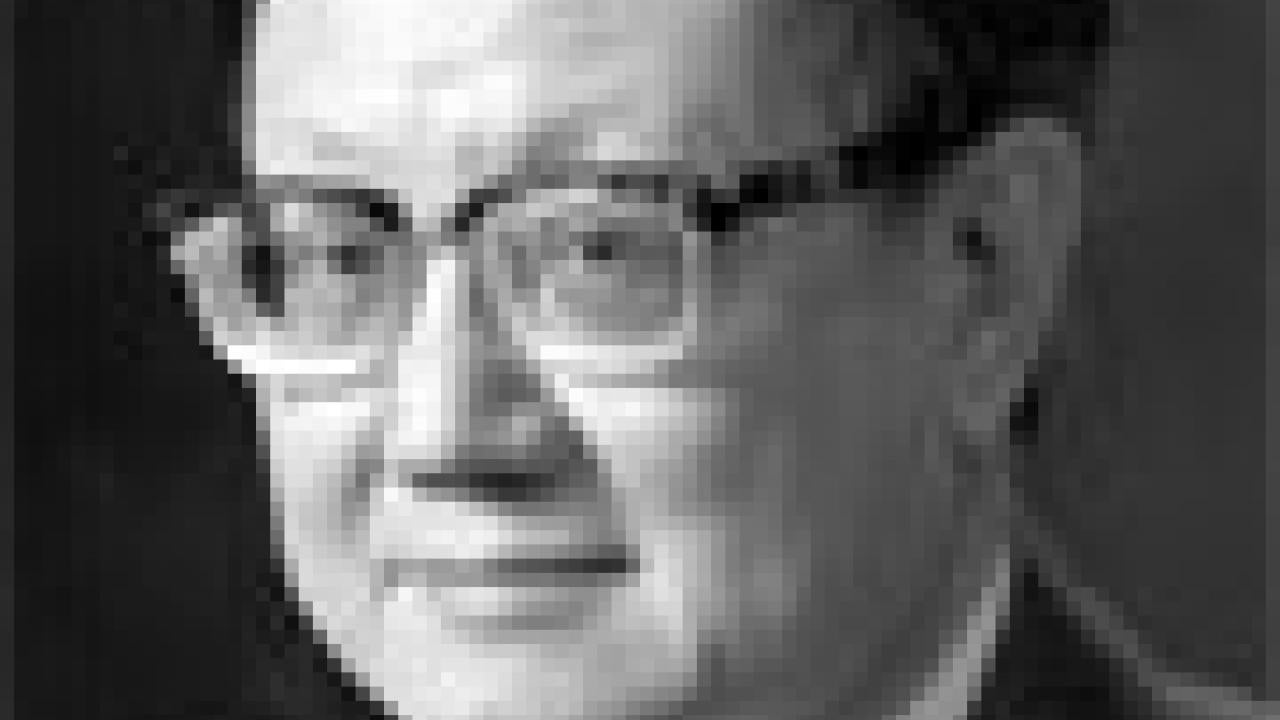Shang Fa Yang, an internationally acclaimed plant scientist at the University of California, Davis, whose research unlocked the key to prolonging freshness in fruits and flowers, died Feb. 12 in a Davis hospital from complications of pneumonia. He was 74.
Although his four decades of research probed the technical intricacies of plant biochemistry, the practical results can be seen in every produce section throughout the world.
Yang, an expert on the plant hormone ethylene and its important role in agriculture, was elected in 1990 to the National Academy of Sciences, one of the highest honors for scientists in the United States.
Colleagues remember Yang as a brilliant scientist and a wonderful mentor who could "do more chemistry at his desk with a pencil and paper than most biologists could do with a limitless supply of chemicals and test tubes."
"Shang Fa was renowned for his clarity of thought and encyclopedic knowledge of his field," said Kent Bradford, a plant science professor and director of UC Davis' Seed Biotechnology Center. "And yet, he remained open, approachable and sincerely interested in the well-being of his students and associates. He encouraged and supported the careers of the many students and postdoctoral researchers who were fortunate to have the opportunity to work with him."
Born in 1932 in Taiwan, Yang earned his bachelor's and master's degrees in agricultural chemistry at the National Taiwan University and his doctoral degree in plant biochemistry at Utah State University. He conducted postdoctoral research at UC Davis, New York Medical School and UC San Diego before joining the UC Davis faculty in 1966.
His research focused on how plants produce ethylene, which is important in regulating a host of plant functions, ranging from seed germination to fruit ripening. During his career, Yang traced how a certain plant amino acid, known as methionine, goes through several biochemical reactions, finally ending up in the form of ethylene.
These studies contributed greatly to the development of technologies for prolonging the quality of fruits, flowers and vegetables after harvest. His research findings also led to the isolation of genes responsible for the biosynthesis of ethylene, which opened the door to genetic strategies for improving postharvest life of flowers and fresh produce.
"Although he was a brilliant plant biologist, Shang Fa was a modest and unassuming colleague," said plant science professor John Labavitch. He recalled how Yang, by then world renowned for his research, humbly asked if he might co-teach a course with Labavitch, then a junior faculty member.
"He was one of the great men of plant biology, and yet he did not assume," Labavitch recalled. "And I can't remember a time when we talked that he did not have a twinkle in his eye."
"Shang Fa taught so much by example and was a very kind person," said Alan Bennett, a plant science professor and associate vice chancellor at UC Davis. "In the early days, as I was learning to become a young assistant professor, our offices were adjacent and I overheard how he mentored his students with a level of personal involvement and scientific rigor that I had not known or appreciated before. In that way, he also became my mentor, in ways he probably didn't realize."
Yang was the author of more than 160 scientific publications and a member of numerous scientific societies. In 1991, he was awarded the prestigious Wolf Prize in Agriculture for his groundbreaking research on ethylene. In 1992 he was selected by his peers as UC Davis' Faculty Research Lecturer.
In addition to his research, Yang had a love for music, according to his family. He particularly enjoyed classical music and traditional American folk songs. He also had an avid interest in world events.
After retiring from UC Davis, he continued his career as a professor at Hong Kong University of Science and Technology from 1994 to 1997, and then as director and vice president of the research institution Academia Sinica in Taiwan until 1999.
He is survived by his wife of 41 years, Eleanor, of Davis and by sons Albert of Fresno and Bryant of Simi Valley.
A funeral service will be held at 10:30 a.m. Feb. 23 at the Davis Cemetery, 820 Pole Line Road in Davis, followed by a noon reception at the Davis Chinese Christian Church. A campus memorial service is being planned for a later date.
In lieu of flowers, memorial contributions may be made to the Davis Chinese Christian Church, 536 Anderson Road, Davis, CA 95616. Alternatively, contributions may be made to a UC Davis plant sciences student research fund in his memory, with checks made payable to UC Davis Foundation IN MEMORY OF SHANG FA YANG and sent to UC Davis Foundation, One Shields Avenue, UC Davis, Davis, CA 95616.
Media Resources
Pat Bailey, Research news (emphasis: agricultural and nutritional sciences, and veterinary medicine), 530-219-9640, pjbailey@ucdavis.edu
